Covering Islam: Edward Said on Media, Power, and Perception
Edward Said's Covering Islam (1981) is a critical analysis on how the Western world has come to "know" Islam, not through lived experience, but filtered through media, scholarship, and politics. Building off his groundbreaking Orientalism, Said argues that Islam has been less described than it has been defined, often as a threat, and almost always in a manner that furthers Western interests. What emerges isn't a portrait of Islam as a religious faith of multiple cultures, languages, and histories, but a diminished image: Islam as fanaticism; Islam as violence; Islam as the enemy.
Media Images and Simplified Narratives
Said illustrates how, particularly in the late 1970s and early 1980s, the Western media manufactured and perpetuated a terrifying image of Islam. During the Iranian Revolution and hostage crisis in Tehran, television screens filled with representations of the angry crowds, veiled women, and chanting students, where these images were presented as the essence of Islam. News anchors and commentators spoke of a "crescent of crisis," of an "Islamic conspiracy," or of a civilisation that was retreating into barbarism. Popular magazines described Muslims as obsessed with martyrdom, while newspapers published editorials making claims that Islam itself was to blame.
The media frequently presented these ideas in a fashion similar to what seemed self-evident. One network aired a three-minute “lesson on Islam” that simply juxtaposed images of mullahs, the purdah, self-flagellation, and Khomeini as though that would explain an entire faith. The reporting was even worse in that the pictures were shown beside pristine images of American school children, organising rallies to show their patriotic fervour, which was an implied contrast that Muslims and Americans lived in directly opposed worlds: one an irrational and dangerous world and the other innocent and rational.
Said calls this process "covering" in both senses: the media was covering in the sense of reporting Islam, but at the same time covering in the sense of covering up their ignorance. Most journalists did not speak Persian or Arabic, and most relied on cliches or relied on government sources. Likewise, complex political histories like decades of support for the Shah of Iran were reduced to cliches about fanaticism or martyrdom. The end result was not knowledge, but caricature.
Experts, Power, and the Legacy of Orientalism
The issue was not limited to journalists, however. Said traces these simplifications back to a longer Western tradition he calls Orientalism, a way of representing the East that seeks to characterise it as exotic, backward and inferior. In Covering Islam, he demonstrates how modern-day experts have, to a large extent, played a similar role. Analysts of the Middle East often had some conspiracy theory-ish ties to governments, corporations, or the military, but the presentation of their words was almost exclusively done in a neutral and objective manner. Said argues that nearly all commentary about Islam was freighted with political meaning, whether that was to justify Cold War policies, protect oil interests, or make the case to argue in favour of alliances with authoritarian leaders.
Nor was the academy immune. Islamic studies in the United States had become marginal, dependent almost exclusively on government or business funding, and many scholars tended simply to reproduce the same stereotypes rather than attempt to challenge them. Islam was treated as a single unified “other,” rather than grappling with it as a belief system that is lived in diverse ways in Africa, Asia, and the Middle East. Even questions like: Is there even an "Islamic worldview?" were hardly, if ever, raised. The unravelled assumption was that the "Islamic mind" is irrational, violent, or fundamentally at odds with or hostile to the West.
The Iran hostage crisis exemplified how these forces worked in concert. American audiences viewed images of hostages, angry crowds, Ayatollah Khomeini, and more for a total of 444 days. The story became framed as Islam versus the West. At the same time, little attention was paid to the deeper causes: antipathy towards U.S. interference in Iranian affairs, the repression under the Shah, or the lack of a democratizing agenda. The day the hostages were released, the stories celebrated American resolve. Still, they continued to depict Iran as both irrational and dangerous, eliminating any discussion of the complexities and contradictions of Iranian society in favour of a story that fit, at a minimum, the assumptions of American public life.
With Cold War rivalries and oil politics at stake, these simplifications became more potent. Islam was a good shorthand: friendly regimes were privileged as anti-communist allies, and unfriendly ones were condemned as fanatical. The phrase “crescent of crisis” was a great catch-all to make a large region into one problem zone. Said calls it "word politics," a war fought not only through policies, but through the words and images that constructed Islam in the Western memory.
Said does not imply that Islam should be free from critique, nor that Muslim worlds are free of problems. His concern is that knowledge from the West about Islam has been produced in ways that have made fair or accurate representation nearly impossible. Knowledge and power are intertwined: when we hear or learn about Islam, it is almost always produced to meet a strategic need, rather than to tell the truth.
In the last chapters, Said turns his attention to the obligations of readers and citizens. He reminds us that no account of a culture is ever completely objective; all knowledge is a function of its context and interests. But this does not mean we simply have to accept clichés. Real understanding requires: making the effort to learn languages, listening to multiple voices from the Muslim world, and assessing the preconceived ideas and biases we carry with us. He asserts that for readers it is possible and necessary to exercise critical judgment - to determine sense from nonsense - and demand more from experts and media.
The stakes are higher than ever. Islam, as simplified and demonised by fear, is consistently used to mobilise people against China, the Middle East, and much of the developing world; to reinforce the "us vs. them" thinking that goes into slicing up society, which makes it easy for governments to call for increased intervention, expand military buildups, or legitimise support for dictatorships. The abrupt turn for the U.S. towards a policy that privileged militarisation in the Gulf and elsewhere, following the crisis in Iran, was a single example of how discussions that pre-empt choices can transform in ways we don't yet fully understand, without the discussion of alternatives. The ongoing and continuously changing misrepresentation of Islam continues to generate a culture in which public battle lines are drawn around terrorism, refugees, and concerns about global politics, more generally.
To report on Islam is to report beyond Islam. It is about the nature by which we construct meaning in the world, the forms through which we produce knowledge, and how media and power can fabricate images that have the weight of real, as Said questions for honesty, scepticism, and establishing a common bond of humanity. When we move past clichés and take a few more moments to ask the hard questions, we, as the public, collectively contribute to swapping fear for understanding —and perhaps, a reasoned basis for a more just society.
About the Author
Sayed Basha, from Andhra Pradesh, is a final-year scholar in the Department of Qur’an and Related Sciences at Darul Huda Islamic University, Kerala. His primary focus of study is Islamic texts and classical literature. He hopes to provide a meaningful contribution to Qur’anic and Islamic studies.
References
Main Reference (Book Reviewed):
- Said, Edward W. Covering Islam: How the Media and the Experts Determine How We See the Rest of the World. New York: Pantheon Books, 1981.
- Said Edward W. Orientalism. New York: Vintage Books, 1979.
- Said Edward W. The Question of Palestine. New York: Vintage Books, 1979.
Disclaimer
The views expressed in this article are the author’s own and do not necessarily mirror Islamonweb’s editorial stance.

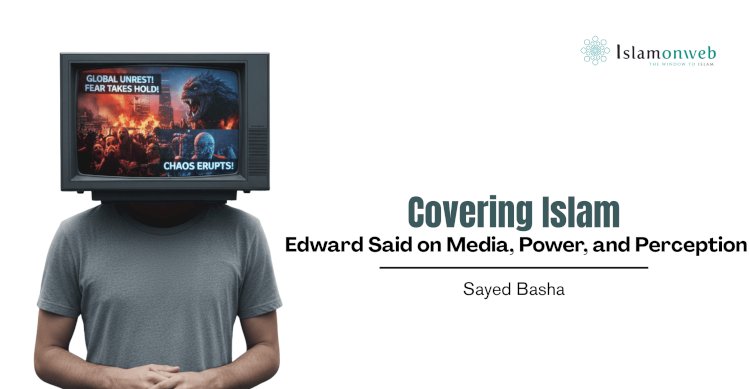


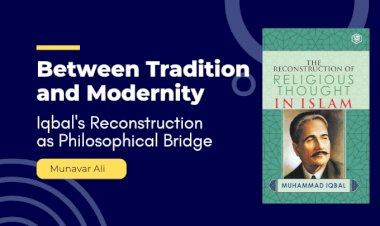
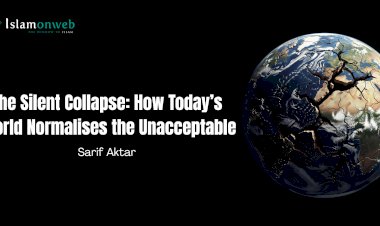
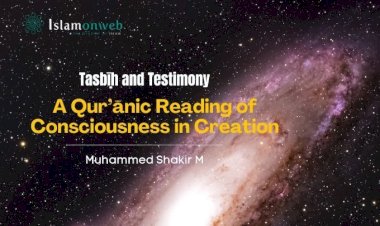
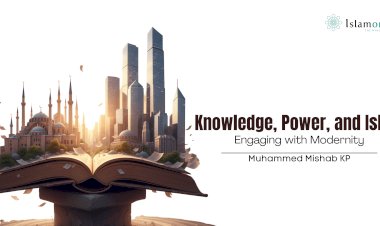
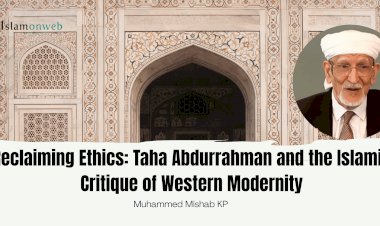
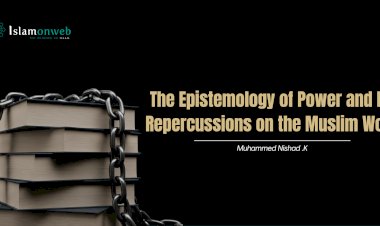














Leave A Comment